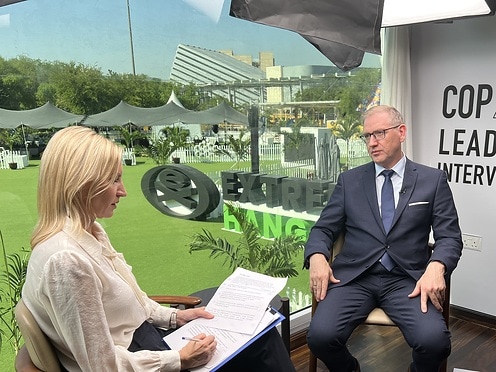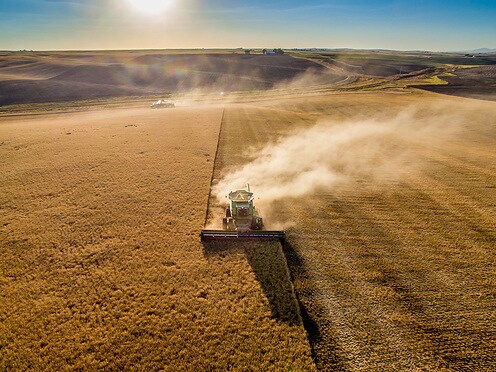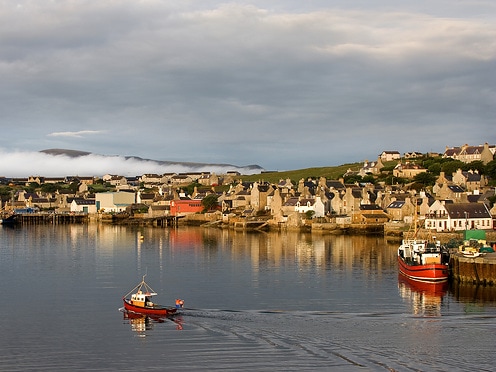Small pumps, major recycling potential
The recycling of raw materials is a driver of climate protection. Wilo, one of the world’s leading providers of pumps and pump systems, has therefore created not only a sustainable product recycling system but also a returns process in Germany that its customers can use.


Thomas Fetting, Group Director Analysis, Repair & Recycling at Wilo.
Smartphones and EVs, computers and wind turbines. Most of the achievements of the modern world have one thing in common: They contain rare earths. These 17 metals, including neodymium and dysprosium, are among the most coveted raw materials in the world, and are mined almost exclusively in China. Already, however, it’s becoming clear that newly mined supplies of these rare earths will not be enough to cover future needs.
That fact hasn’t escaped Wilo, a Dortmund-based group, which is one of the world’s leading premium suppliers of pumps and pump systems for building services, water management and industrial sectors. “Rare earths are the oil of the 21st century,” says Thomas Fetting, Group Director Analysis, Repair & Recycling. “They’re also found in the permanent-magnet motors used in our pumps and systems. If they aren’t recycled, these rare earths will be lost forever.”
30,000 components re-used every year
That’s why Wilo has long been systematically recycling used products in its own recycling centre. The product analysis, repair and recycling team takes defective products – those returned via the claims process, for example – and works out the cause of failure and documents it for product development work. They are then repaired or, if necessary, disassembled. Then what? “We check which parts we can re-use for repairs or in new products,” says Fetting. “In the process, we keep about 30,000 components in the circular economy each year.”
Wilo supplies all worn and safety-relevant parts to its recycling partners. They ensure the materials are recycled, by melting or shredding them, for example. The rare earth magnets are an exception. For Wilo, including them with the materials given to its recycling partners is not an option. No recycling process is currently able to separate rare earths from other raw materials. So Wilo’s recycling team manually removes the magnets from the pump motors and checks whether they can be used. If not, Wilo and its recycling partners ensure the rare earths are fed into the circular economy.
“Rare earths are the oil of the 21st century. They’re also found in the permanent-magnet motors used in our pumps and systems. If they aren’t recycled, these rare earths will be lost forever.”
But Wilo gets back only a fraction of the pumps it sells in Germany through the claims process – these are an absolute exception. Nevertheless, the market offers major potential. “It’s worthwhile proactively replacing old heat pumps with more efficient models,” says Fetting. “It saves power and money. Every year, the specialist technicians in Germany remove a vast amount of old pumps capable of being recycled. And we want them!”
Wilo’s sustainable used pump recycling process
The legal situation is that decommissioned legacy devices, including pumps, must be disposed of at certified collection points. Failure to do so can incur fines of up to € 10,000 under Germany’s Electrical Equipment Act. “Our customers therefore wanted a legally compliant and environmentally friendly way of getting rid of old pumps without lots of red tape,” says Fetting. Wilo and its partners evaluated a range of solutions as part of a research project by the German Federal Environmental Foundation.
The result was a process that makes use of Wilo’s three-level sales channels – i.e. one that also includes specialist wholesalers and the specialist technicians. Specifically, Wilo makes two broad options available. Large scale specialist technician operations gather legacy pumps and ask Wilo to collect them; or small-scale specialist technician businesses take old pumps to wholesale firms that are Wilo’s recycling partners, or arrange for them to take the accumulated legacy pumps away with their next new product delivery. In both cases, the old pumps are accepted by the specialist wholesalers and by Wilo at no cost, regardless of make, type, age or condition.
“It’s worthwhile proactively replacing old heat pumps with more efficient models. It saves power and money. Every year, the specialist technicians in Germany remove a vast amount of old pumps capable of being recycled. And we want them!”

The magnets in the pump motors contain rare earths – these raw materials are “the oil of the 21st century”.
Wilo’s returns process ensures that old pumps are taken back in compliance with the law, and aims to make a specific contribution toward climate protection. Is it a success? Granted, initial experience indicated a high level of willingness to support the project, says Fetting. “But it isn’t always easy to motivate partners to do the collection work. We’re sticking with it, however, since we can’t see any alternative to the circular economy.” In fact, the stated goal is to use only rare earths from legacy products in Wilo’s in-house production in future.
“Don’t look at others”
Wilo has ambitious goals, but Fetting says it doesn’t have to be that way, at least at the beginning. His advice for companies that want to commit more strongly to saving resources: “Just do it. Get your employees, suppliers and customers on board with you. Don’t look at others, just be active yourself.” Of course, saving resources has long played a part in product development for Wilo. “But,” Fetting recalls, “the strategic combination of the analysis, repair and recycling units was the first step toward more ‘circular economy’ in our day-to-day business.”
In-house processes have now been developed that cover all stages from development to recycling. The recycling team regularly provides Product Development with requests for new products. The results of another research project that Wilo performed recently with Cologne University of Applied Sciences and the Fraunhofer Institute for Material Flow and Logistics will also contribute to the process. In the “ResmaP” (“Using smartpumps to save resources”) project, the participants investigated how Wilo smart pumps and the data gathered by these devices, including operating hours and faults, could help to save resources.


















